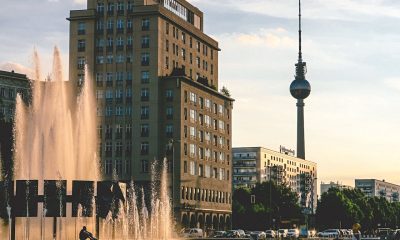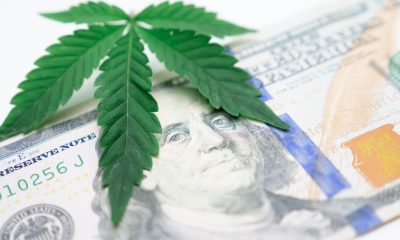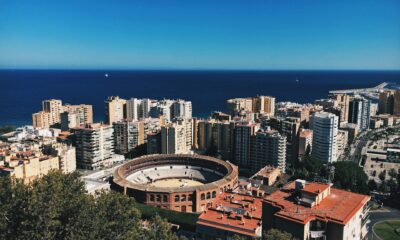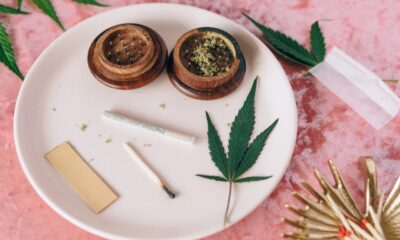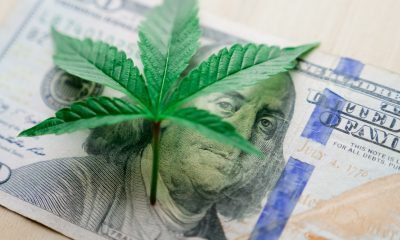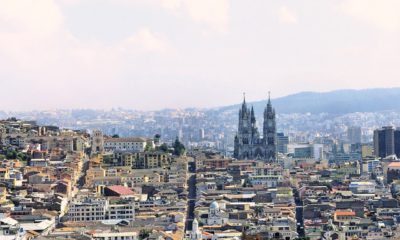Cannabis
Cannabis Business Flourishes in Pedro Moncayo, Ecuador
On October 19th, 2020, the Ministry of Agriculture and Livestock (MAG) issued a rule to regulate seven types of licenses for this input. CannAndes holds all of them, which entitles them to import and sell seeds, production and sale of seeds and buds, production of non-psychoactive cannabis and industrial hemp, genetic development, production and processing of derivatives, and marketing and export.
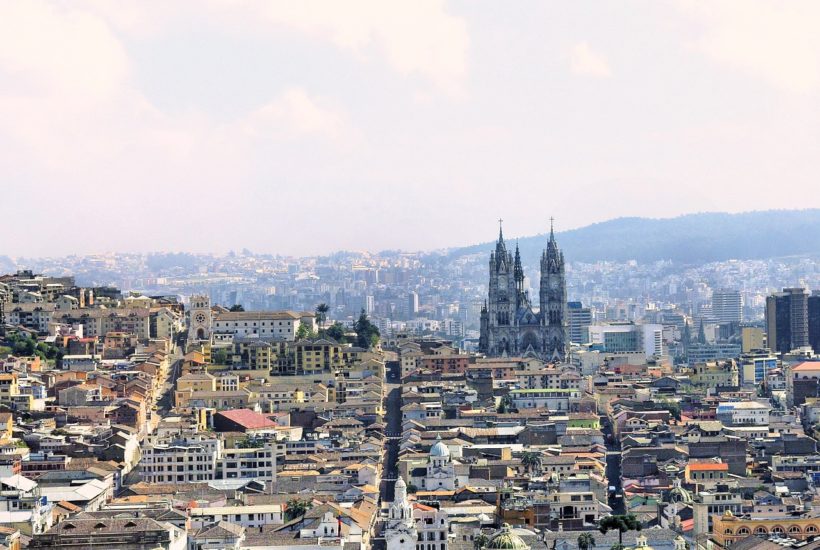
Creams, soaps, and aromatic drinks are part of the 10 products made with non-psychoactive cannabis developed by CannAndes. It is an Ecuadorian company that owns the first legal crop in Ecuador, authorized to harvest and process the plant for therapeutic and industrial purposes.
Klaus Graetzer, president of CannAndes and manager of the flower shop Boutique Flower’s, explained that they are processing the sanitary registrations to bring these articles to the national market. Since six months ago, in the flower farm -located in Pedro Moncayo, in the north of Pichincha- cannabis has been blooming on one hectare (ha), surrounded by roses for exportation on 30 ha.
Klaus Graetzer, Felipe Norton, and Alfredo López, who make up CannAndes, are confident in the potential offered by non-psychoactive cannabis and industrial hemp. That is why after the decriminalization of these plant varieties, with less than 1% of tetrahydrocannabinol (THC), they applied for the corresponding permits.
Read more on the subject and find the latest cannabis news in the world with the Hemp.im mobile app.
On October 19th, 2020, the Ministry of Agriculture and Livestock (MAG) issued a rule to regulate seven types of licenses for this input
CannAndes holds all of them, which entitles them to import and sell seeds, production and sale of seeds and buds, production of non-psychoactive cannabis and industrial hemp, genetic development, production and processing of derivatives, and marketing and export.
The three entrepreneurs took the lead on a national scale. While processing the licenses the previous year, they made contacts with cannabis seed suppliers. Currently, the Cherry Oregon variety, which they imported from the United States, is germinating in a greenhouse.
Again and again, Graetzer reiterates that non-psychoactive cannabis, whose component is cannabidiol (CBD), has nothing to do with marijuana or psychoactive cannabis (THC). “The latter variety is still prohibited in the country,” he explained.
Pedro Moncayo is the canton with more hectares approved for cannabis cultivation (48 ha). This canton and Mejía concentrate 73% of the approved area in Pichincha.
In fact, Pichincha, Guayas, and Cotopaxi account for most of the 46 licenses granted by the MAG
Unlike the United States, Switzerland, and Colombia, which have developed a cannabis industry, Ecuador is considered to have an advantage. As a reference is Pedro Moncayo, where 40% of the 442 floriculture plants in the country have settled. This is where the best roses on the planet are produced.
Among the natural virtues of this area is the perpendicular sunlight throughout the year, temperate climate, water, and fertile soil. In addition to this, there is the infrastructure and qualified personnel, as in the case of Flower’s Boutique, which also has a laboratory and an oil extraction plant.
There, the greatest number of uses that can be given to CBD are sought. This element – with analgesic, anti-inflammatory, anxiolytic, anticonvulsant, antipsychotic, and neuroprotective properties – can be used in medicinal, cosmetic, and food lines.
One of the most in-demand products is the CBD dropper, which is recommended to control pain, relax anxiety and improve sleep.
The highest amount of cannabidiol is in the flower of the plant. When the priority is to obtain quality flowers or buds, greenhouse cultivation is suggested. But when it is aimed at the industrial production of fiber, which comes from the stems, it is better to plant the plant outdoors on the coast.
CannAndes plans to grow cannabis on the coast. In three or four months it plans to plant 25 hectares on land owned by the company in Chongón, Guayas.
Although there is no data on the profitability of cannabis in the country, as it is a new crop, Colombia is used as a reference. There, the annual turnover is USD 500,000 per hectare. That is to say, it is double the profit in relation to 1 ha of roses, says Klaus Graetzer, while he walks through the plantation.
__
(Featured image by DEZALB via Pixabay)
DISCLAIMER: This article was written by a third party contributor and does not reflect the opinion of Born2Invest, its management, staff or its associates. Please review our disclaimer for more information.
This article may include forward-looking statements. These forward-looking statements generally are identified by the words “believe,” “project,” “estimate,” “become,” “plan,” “will,” and similar expressions. These forward-looking statements involve known and unknown risks as well as uncertainties, including those discussed in the following cautionary statements and elsewhere in this article and on this site. Although the Company may believe that its expectations are based on reasonable assumptions, the actual results that the Company may achieve may differ materially from any forward-looking statements, which reflect the opinions of the management of the Company only as of the date hereof. Additionally, please make sure to read these important disclosures.
First published in EL COMERCIO, a third-party contributor translated and adapted the article from the original. In case of discrepancy, the original will prevail.
Although we made reasonable efforts to provide accurate translations, some parts may be incorrect. Born2Invest assumes no responsibility for errors, omissions or ambiguities in the translations provided on this website. Any person or entity relying on translated content does so at their own risk. Born2Invest is not responsible for losses caused by such reliance on the accuracy or reliability of translated information. If you wish to report an error or inaccuracy in the translation, we encourage you to contact us.

-

 Crypto1 week ago
Crypto1 week agoCaution Prevails as Bitcoin Nears All-Time High
-
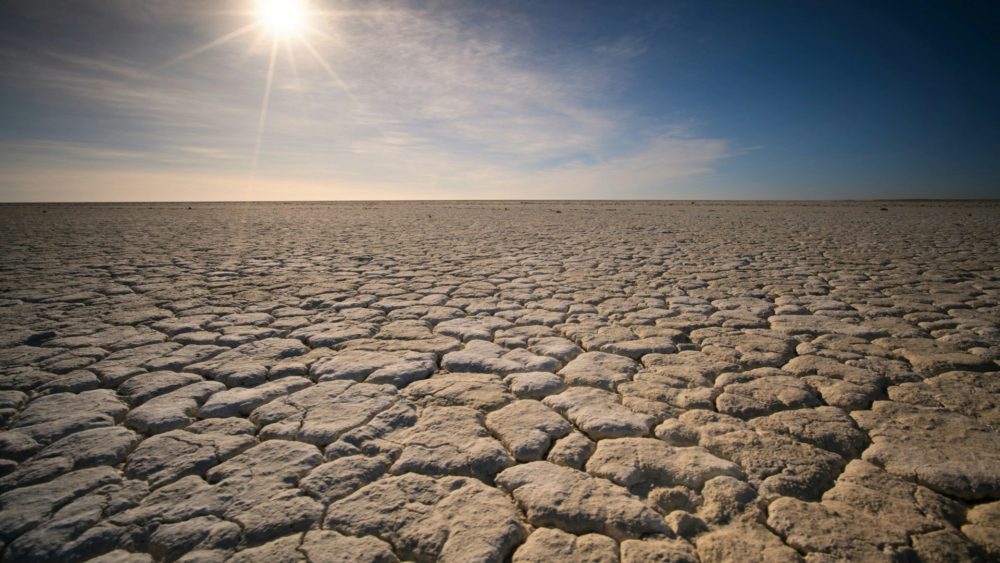
 Africa3 days ago
Africa3 days agoBridging Africa’s Climate Finance Gap: A Roadmap for Green Transformation
-

 Biotech2 weeks ago
Biotech2 weeks agoEcnoglutide Shows Promise as Next-Generation Obesity Treatment
-

 Business14 hours ago
Business14 hours agoThe TopRanked.io Weekly Digest: What’s Hot in Affiliate Marketing [uMobix Affiliate Program Review]
